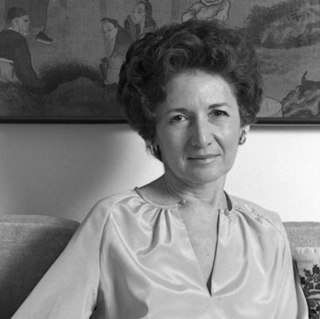A Quote by Lewis H. Lapham
When we talk about the foreign, the question becomes one of us versus them. But in the end, is one just the opposite side of the other?
Related Quotes
Now I’m just standing here on the conveyor. Along for the ride. I reach the end, turn around, and go back the other way. The world has been distilled. Being dead is easy. After a few hours of this, I notice a female on the opposite conveyor. She doesn’t lurch or groan like most of us. Her head just lolls from side to side. I like that about her. That she doesn’t lurch or groan. I catch her eye and stare at her.
The perennial architectural debate has always been, and will continue to be, about art versus use, visions versus pragmatism, aesthetics versus social responsibility. In the end, these unavoidable conflicts provide architecture's essential and productive tensions; the tragedy is that so little of it rises above the level imposed by compromise, and that this is the only work most of us see and know.
We are the shadow of Sirius. There is the other side of - as we talk to each other, we see the light, and we see these faces, but we know that behind that, there's the other side, which we never know. And that - it's the dark, the unknown side that guides us, and that is part of our lives all the time. It's the mystery.
I am extremely conscious of my tribalism. And when you talk about tribalism, you talk about living in a black and white world. I mean, Native American tribalism sovereignty, even the political fight for sovereignty and cultural sovereignty is a very us versus them. And I think a lot of people in this country, especially European Americans and those descended from Europeans don't see themselves as tribal.
It seems that other parts of the world ought to be concerned about what we think of them instead of what they think of us. After all, we're feeding most of them, and whenever they start rejecting 25 cents of each dollar of foreign aid money that we send to them, then I'll be concerned about their attitude toward us.
The part of the strangeness of coming back from the war is the way we talk about it. We try to have a discussion about the war that doesn't turn into a discussion about one political side or the other. I wanted to reach out and talk to people about it through fiction, the way a narrative can draw someone in and ask them those questions.
We can sit here and talk about all the negativity, which we've done a little bit, but for every act of evil in the world, there are a million acts of kindness. Basically, our nature is to love each other and care about each other, and most of us do that. Most of us have no quarrel with anybody who's living on another side of the planet and who might have a different religious persuasion. It's just these small minorities to the far right and the far left who get all of the news time and print space.




































